Full Transcript: Business Road to Recovery
Business knows there’s a long way to go in the battle against the pandemic. But it’s keen to do more than survive, as a panel of senior CEOs tells The Weekend Australian.
This is an edited transcript of the Road to Recovery roundtable convened by The Business Council of Australia and presented by The Weekend Australian. The CEOs all chair working groups focused on identifying strategies for economic recovery and growth
The panel:
Tim Reed, president, Business Council of Australia
Rob Scott, CEO, Wesfarmers and on the BCA’s tax and federation working group
Andy Penn, CEO, Telstra and on the BCA’s digital economy and telecommunications working group.
Alison Watkins, Group managing director, Coca-Cola Amatil and on the BCA’s overarching COVID-19 economic recovery working group.
Susan Lloyd-Hurwitz, CEO, Mirvac and on the BCA’s housing and construction working group.
Moderator: Glenda Korporaal, Associate Editor (Business), The Australian
Tim Reed: The challenge we face started with a health challenge that has very quickly become an economic challenge. At the BCA we started working on three time-frames. One, what do we need to do from a health perspective in terms of safely shutting down things but keeping as much economic activity happening as possible, and then very quickly swung to how do we reopen as quickly, effectively and safely as we possibly can? The second part was then the economic stimulus and particularly coming into the September time-frame when JobKeeper, JobSeeker - the stimulus that the government put in place was looking like expiring.
So it was, what do we think the government should be doing in the short term? The third component was very much around long-term reforms, and how do we come out of here stronger than ever? How do we take this opportunity — you go back to the last recession we had, and there were three decades of uninterrupted economic growth thereafter - so how do we have the courage to make the decisions that tee us up for another 30 years like that? We organised into 14 work streams, each led by a member CEO to look at those second and third phase questions: what can we do to stimulate demand in the economy immediately or stimulate economic activity immediately and what are the longer term reforms? There’s likely to be in the order of two million jobs we need to collectively create. The challenge is a very clear one: it’s taken us 10 years to create the last two million jobs and we need to be thinking of this in a two to three year time-frame. That shouldn’t be underestimated as a challenge. But we do have a number of things working for us, including unprecedented co-operation across the economic actors, the government business, trade unions and, and various, community and civil groups.
Glenda Korporaal: Can we go to July 23 when the Treasurer will make his statement - what do you want to see from that?
Rob Scott: First of all, how the various stimulus payments will change and evolve going forward. The JobKeeper and JobSeeker payments in particular have been very significant forms of stimulus that have been very impactful for the economy at such an uncertain time. But we all recognise that it’s not sustainable to keep them going in their current form forever. So, we’re very interested to hear how the government plans to refocus those payments and really direct them to the areas where people are most affected. And from my point of view, some form of ongoing stimulus is going to be very important to support people through the COVID issues but also very important for the economy.
The other thing that I’d be interested to see is what announcements there may be around tax. I think that there are some shorter term changes to tax, particularly around potential investment allowances, potentially the bringing forward of personal income tax that we think will be very impactful and very positive to stimulate investment which is what is going to be critical for jobs going forward.
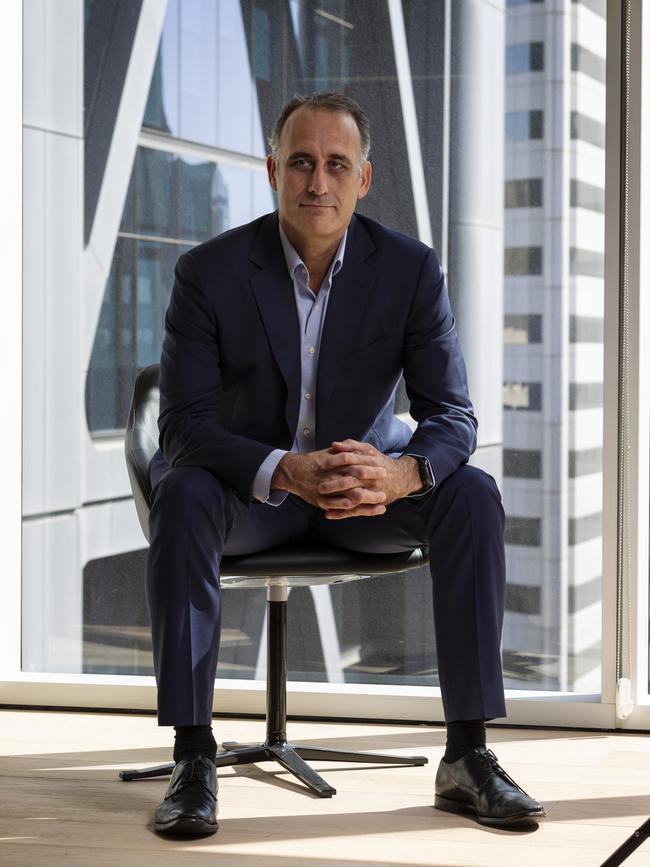
Korporaal:What specific tax things would you like to see in this statement?
Scott: On July 23 we would be more interested in the short-term, more tactical changes that will be very impactful in the short term for investment, and therefore job creation. So investment allowances are some of the most impactful, short-term tax measures that will stimulate investment by small business and big business. And ultimately that will have a flow on effect to jobs. As I said as well, personal income tax.
I think what we need to be focused on is not just unemployment but also underemployment. And at the moment we’re seeing, particularly across part time and casual workers, a significant reduction in hours worked. So the way in which we can use the tax system as a lever to improve disposable income, create greater confidence in households, therefore stimulate spending, will be important.
Alison Watkins:The statement is important as a signalling device as to the level of support the government intends to provide, not only in the near term, but over the medium term. As a country we need to balance the withdrawal of the stimulus with the pace at which a private sector recovery can emerge. And that’s going to be over a period of years. We’ll be fortunate to go into this situation as a country with a strong balance sheet. And so therefore a pretty thoughtful and measured approach starting from this July 23 statement is going to be important.
Andy Penn: Really, the five areas of principal recommendations coming out of the work is in relation to digital enablement. So what support can we give businesses in particular to enable them to fast track to become digitally enabled? And in particular, the small to medium business sector of the country? About one third of the small to medium businesses in Australia don’t have a website and only about half of those are e-commerce enabled, so able to work in a digital way. So one (issue) is acceleration of the enablement of small to medium business. The second is in relation to regulatory reform. Actually the main recommendation is not so much for big regulatory reform, but for micro regulatory reform. So if you could go systematically through regulation at the federal, state, and local level, any regulation that gets in the way of moving to a cashless economy, a paperless economy, and a virtual economy. Just eliminating the need to be present to sign things or to have to print out certificates, or not to be able to do business, digital sort of payments and stuff. The third area is really around the infrastructure that supports the digital economy. If we want to accelerate the digital economy, we’ve got to have an infrastructure that supports that. And that’s principally telecommunications and data centres and cloud, effectively. And if there was ever a moment in time for a resetting of the vision for the next 10 years for telecommunications, as we are on the sort of eve, if you like, of the rollout of the NBN, we’re in the dawn of the 5G era, we need a road map for the future, which is technology agnostic for telecommunications for the country.
The fourth area is cyber security. I’ve been chairing separately the industry advisory panel for the government’s 2020 cyber security strategy. We’re publishing our report on that next week. And there’s something like 60 recommendations in that report. It’s encouraging to see actually the government is already taking action and initiatives in relation to a number of those recommendations. But seeing that follow through is going to be important. The fifth area is skills. The ones that are really relevant to the budget are probably any stimulus and support around digital enablement for small and medium business. On telecommunications, anything that’s sort of talking to the future road map of the NBN and how the technology is upgraded, I think will be an important topic. And on cyber security, the government’s already announced its $1.35 billion enhanced situational awareness package but the sequencing and the timing of that and how that’s going to be invested in the next period of time will be really important as well.
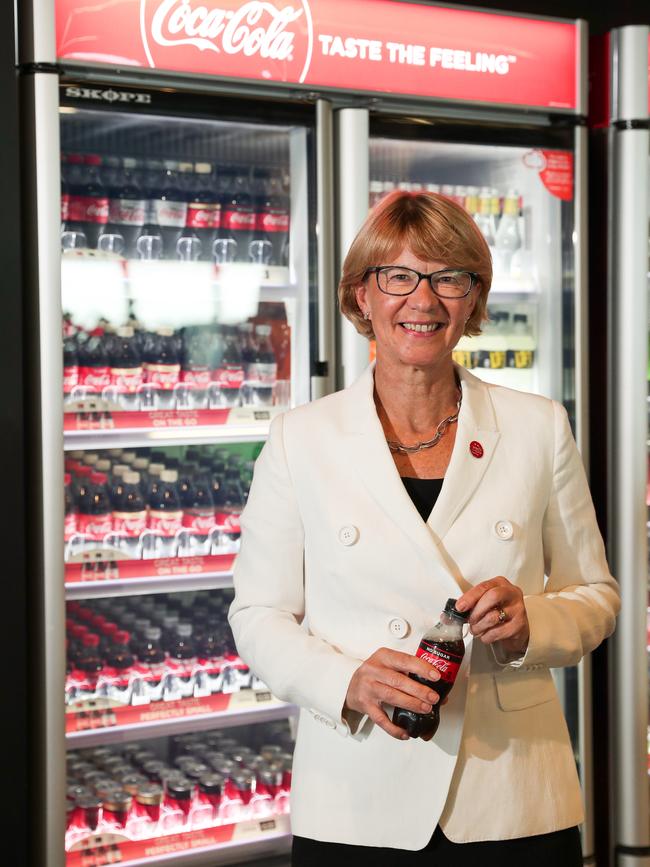
Korporaal: We all think we can work from home but is cyber security more important in this distributed world?
Penn: As we’ve all moved to work and study from home and we do more business online, we are putting ourselves in a more cyber-vulnerable environment. And we’ve got to build the cyber defences to match that. You’ve heard from the Prime Minister that we are seeing a high level of activity, including from a state-based actor. We’re seeing increased criminal activity, cyber activity. if we’re going to accelerate the move to a digital economy, we need to ensure that our cyber defences are up to the job.
Susan Lloyd-Hurwitz: In the housing and construction world, a lot of the levers belong to the states rather than the federal government. But what we would like to see in any kind of announcement is the continued signalling of co-operation between federal and state governments and even where things are in the states’ control, the federal government can still help by incentivising states to make changes in those really critical areas. So (there are also) some more tactical ones. Very practically more accelerated spending on maintaining public and social housing. That’s a good stimulus, and that can be created. Changing the HomeBuilder grant, which is a great grant, and we’ve absolutely seen the flow-on effect of that in increased leads and sales. But the time frame is too short: we have to be able to start construction in three months. That’s too short. Great idea (but) let’s make the time frame a little longer.
Then at a more structural level, how the federal government can signal incentivisation to states to tackle the really hard things that we all know need to be done, but are politically very challenging, like stamp duty, changes to land tax, and genuine planning reform. It’s been wonderful to see the fast track approach that state governments have taken around getting rezonings and planning approvals that have been previously stuck in the system out of the system. But that’s only step one, that is fixing what is just stuck. It’s not structurally changing the planning system to make it fit for purpose into the future. So those are some areas that are clearly in state control, but there are incentives that the federal government could put in place to encourage states to meet targets now to genuinely change how planning is done. City Deals, for example, (partnerships which bring together the three levels of government and the community). But we do recognise that those are genuinely hard political reforms.
Tim Reed: I think to Rob’s point, getting certainty around the temporary stimulus programs that have been announced would be great for businesses big and small, because that allows planning. It’d be great to start to see some of the initiatives that my colleagues have spoken about being funded. So some of those digital initiatives, et cetera. It would be great to get more certainty around deregulation. There are a number of things in the Corporations Act, in industrial relations, in planning, that were very stop gap measures. And to start to get more visibility into those being extended ... we would ask that the government consider extending all of them, because we think it’s needed. And the final thing, I think, from July 23- it would be great to have some streamlining of the standard transactions going through FIRB, because there is a reasonable bottleneck there and that is stopping a reasonable amount of corporate activity.
We’re all aligned around the fact that the challenge is creating jobs. And the way in which we are going to create jobs is to stimulate demand, things like bringing forward the personal income tax cuts. But the other will be, just frankly, government investment. So to Andy’s point, things like building the digital infrastructure for the future, those sorts of things are things that we’d then really like to see in the October budget. And yes, absolutely, we think that stimulating economic activity is best done by business and to get businesses to invest, we would like to see an investment allowance, which will bring forward company investment. Many of our members have large balance sheets. Many of them, in fact, they are all very committed to investing in Australia. And to have that accelerated investment allowance will change the ROI on those investment cases, as will, to Susan’s point, really fixing the planning and regulatory processes. So if we could get those tackled then in the October budget, I think we would think the government’s doing a lot of things in the right direction.
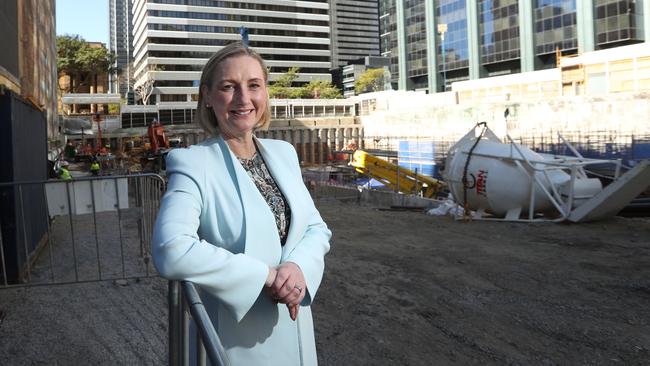
Korporaal:We’re seeing a second wave of the virus. How do you feel? How has the corporate confidence changed?
Penn: I think that, practically, we all expected there to be a bit of a second wave and/or outbreaks or flare ups as the government endeavoured to start to lift restrictions. That was always inevitably going to be the case. So that’s not a surprise. I think perhaps it is a little bit of a surprise how quickly that’s escalated and how the numbers have been probably more than we would have perhaps hoped for. And it doesn’t feel that it’s an isolated situation in Victoria, it wouldn’t make sense that it’s only Victoria that could be impacted in that way. So I think that is a little bit concerning. But I think we’ve always expected there to be a relatively extended period where we’re going to have to manage with restrictions being increased and reduced over time. I think it was the Treasurer who said at one of our previous meetings Tim, if the health situation is not under control, then it’s very difficult to get any other aspect of the economy or society being managed effectively. I think it is really important that that lens on focusing on the health situation continues to be maintained at the highest level of priority. And it feels like we’re going to have to face the reality of continued restrictions and increased restrictions.
Watkins: One thing that has helped is the definition of the timeline around the lockdown: we know that it’s six weeks. Now obviously, that can change, but there is an indication of a timeline. So what we’ve seen so far, and it is early days, is that the majority of our small customers are going back into a kind of skeleton mode, but they’re not shutting down completely like they did last time because they do have the expectation of a time frame, which is helping them from a planning point of view.
I think the second observation is that it just generally shows the importance of acting early and decisively. And so having robust testing, tracking, tracing, isolating processes, and as a country being pretty uncompromising on that, taking a leaf from other countries that are perhaps doing it a little bit further down the track than we are. Germany would be one example of doing it pretty well.
But the tighter you can isolate an outbreak and limit the need for broader, more heavy-handed lockdowns, the better, obviously. The more we can also avoid state by state boundaries, and really try to keep these to be very tightly targeted lockdowns that are not about state boundaries ... I think that’s (important) for the “One Australia” face that we want to put forward and for example, being able to open up our international travel possibilities to New Zealand, Fiji, and so forth.
Korporaal: Rob, you’re in Perth, but you have to manage businesses around Australia. Has it knocked your confidence seeing parts of the second biggest state going into lockdown again?
Scott: Coming into the recent outbreak in Victoria, we were seeing a fairly widespread recovery. Across every state, we were seeing consumer spending improve. And we were also seeing an improvement in business spend, which was encouraging. What’s happened now with the resurgence of cases in Victoria, we’ve seen Victorian consumer spending decrease, and it decreased significantly in the hotspot areas. And that’s a decrease in spend both at a retail consumer level and at a business level. So it is very concerning and I think it was mentioned the other day that the impact of the shutdown is in the order of a billion dollars a week. And if you ask, “Well, what does that mean in real terms?” Well, that means less spending at a household level. It means less spending by businesses, less wages paid to people, less hours of work. Every week that there is a significant lockdown, there’ll be businesses that simply don’t recover. Lockdowns have an enormous negative impact on confidence. We need to be doing everything we can to become a lot more sophisticated in our localised containment because we do need to learn to live with this going forward, at least for the foreseeable future. And I think the more that we can have effective localised responses, then that will build confidence in consumers, in businesses, because what is certain is that widespread, significant lockdowns really hurt the economy.

Korporaal: You are chairing the working group on tax and federation? What aspects of federation are you looking at?
Scott: Tax reform is not something that can simply be dealt with at a Commonwealth level. Many of the taxes occur at a state level. And if we are to truly address some of the significant inefficiencies within our tax system, it will require co-operation across both the state and federal level. And we do think there is a unique opportunity with the national cabinet at the moment to see if that forum can be used as a way to face into some of the difficult issues or the inefficiencies around the tax system.
There are many things that we can do around different regulations at a state, local level that do have a very significant impact on employment, on business investment, be it areas such as planning approvals, the way that the education curriculum is structured for vocational training, trading hours, a whole range of areas. A lot of the lack of digitisation around many government processes at a state level, all these issues that will ultimately help to improve investment, create jobs, do come under that broader banner of the way the federation is working.
Korporaal: From the point of view of the housing and construction industry, has the confidence been knocked around by the last few weeks? How are you seeing it from region to region?
Lloyd-Hurwitz: As with every consumer decision, and particularly very large decisions like acquiring a home, confidence is absolutely key. We had started to see a significant uptick stimulated by some of the HomeBuilder grants and so forth in inquiry and sales right around the country. And that has again slowed down in Victoria, although it’s not stopped. And I’ve often remarked that construction has been living in this weird parallel universe for the last 16 weeks. And (we have seen) really important brave decisions of governments to allow construction to continue to operate safely, given the enormous multiplier effect of that.
The last time we dealt with lockdown, we were also dealing with mass uncertainty, safety issues, pivoting to working remotely. People were suddenly learning how to home school. We were negotiating as an industry a code of conduct on how we were going to deal as a bare minimum with our customers. And this time around, all those things are already in place. So it feels a little different.
I was speaking to the Melbourne team the other day. They just felt sad and flat, whereas in the first lockdown, everybody was in shock. So it’s quite a different feeling. And certainly in our business, a resolve to, “Yep. You can feel sad and flat for a day, but then you got to pick up and keep going and serving customers in the way that we have all learnt to do over the first 16 weeks of this journey.” But clearly with lack of confidence in the Victorian market, it will impact sales and construction. We have been seeing a decrease in approvals and commencements. Despite lower population growth, we are going to probably have an under supply of housing within two years at the current rate because there are very, very few apartment approvals being sought and that must be directly related to confidence. I will finish on one point, however. We’re getting ready to launch the next two stages of our Green Square redevelopment in South Sydney. And we have absolutely sufficient confidence to be able to take that product to the market. And so, you just carry on the best you can.
Korporaal: Tim, has the mood of your members changed in the last couple of weeks?
Reed: We all expected there would be spikes and outbreaks. And what we were looking for was fast, decisive and localised responses, because I think what we have to recognise is we’ll be living with this for one, maybe two years before there’s a widely available vaccine. We have to live with this as the new normal, be able to respond and react, but not overreact and really shut the economy down. I think what you’ve heard is that the four CEOs here, their businesses are all moving forward.
They’re taking the appropriate actions, but are still looking at investing and still making the medium-term decisions in their businesses. But consumers won’t have confidence if they don’t feel safe. People need to feel the health authorities are able to react and respond, (that they can) follow their advice and things will be able to continue forward. And if we can build that confidence in the community, then I think all businesses and particularly small businesses … will have that confidence. Big business will also have the confidence to be able to invest. This is a real moment in time. And in the next couple of weeks, we’ll really see how we can collectively respond as sort of “Team Australia” to make sure we don’t allow outbreaks to bring a complete stop to the economy.
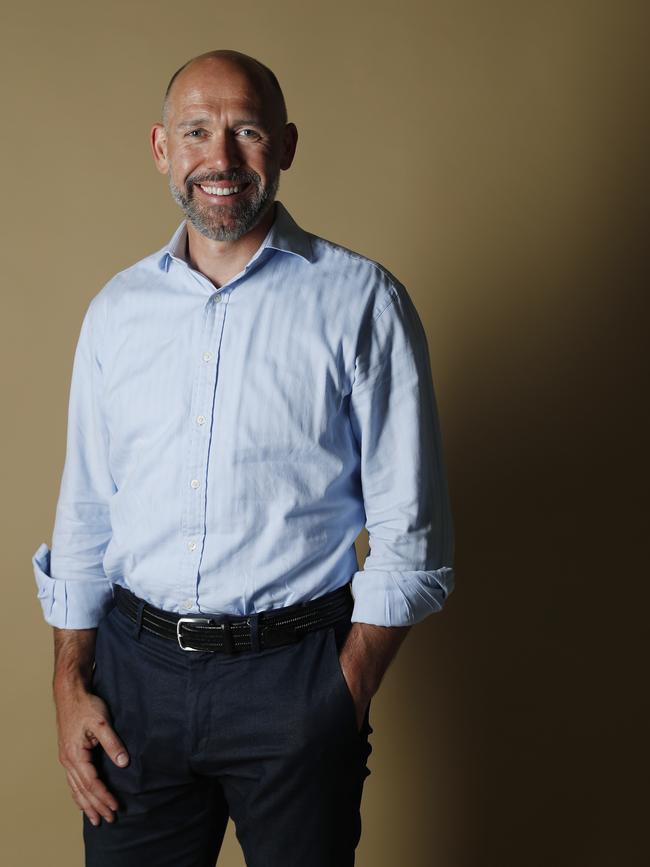
Korporaal:How bad do you think the unemployment rate’s going to get? What you can do to at least minimise it?
Lloyd-Hurwitz: Well I’m certainly no economist and I’m well aware that any economist I know will privately, maybe publicly, also admit that they’re somewhat flying blind in this environment, so far be it from me to put a number out there around unemployment.
What can we do around making sure we protect as many jobs as possible? I think all corporates and the companies that you’ve got on this call, we are doing absolutely everything we can to protect as many jobs as possible through things like taking reduced pay, reduced hours, no STI bonuses, no LTI payments, examining every cost so that we are prioritising retaining jobs rather than chasing costs down and having the courage to keep investing, because that is what creates jobs and will bring further jobs into the system.
Scott: I won’t give you a number either because it’ll be wrong, ultimately whatever I say, but the point I’d make is in addition to looking at whatever the unemployment rate is, the other really, really important data point is the number of hours worked. And as I said earlier, there are many, many Australians, particularly young Australians in casual part-time work. And we should also be mindful of the number of hours worked. If you look at a lot of the sectors that have been significantly impacted through COVID, be it hospitality, retail, tourism, a lot of those industries do rely heavily on casual part-time work. And I don’t think there is any silver bullet or one solution to this. I think it is a whole package of measures that really will go towards building greater confidence in consumers and in business to spend that extra dollar, to hire that extra person, to invest that next dollar in their business.
Reed: We should be able to jointly agree that all decisions should revolve around what’s going to be the impact on jobs. That should be across community groups, it should be across business, it should be across government. And I think we’ve all been frustrated over the last 10 years, at the inability for Australia to move forward and to really reposition ourselves for the future. And I think there has been a lack of an underlying alignment. If we could all agree that is the challenge and that decisions need to be made in that frame, then I think we’d be a long way ahead. Everything we do has to be driven by the health advice. If we had the immediate short-term health advice and the longer term decisions being made in terms of creating jobs, then I think we’d be in a much better place to be able to tackle the challenge of unemployment. And whatever that number is, it’s too high. There are too many people who will be without a job at Christmas this year. And just focusing on that as the overwhelming number one challenge, I think would be a great place to start.
Korporaal: Are you concerned there will be a lost generation of people caught in the middle?
Reed: Yes, we’re absolutely concerned. We’re concerned for people who are entering and starting their careers. We’re also concerned for people who are at the other end of their careers. The general experience from recessions is that the most vulnerable people are those over 55 and that if they lose their job, the probability of gaining employment again is very low. But you know, the impacts on individuals, the psychological and mental health impacts, the impact on skills ... You’ve just finished university, you’ve built up a number of skills and you can’t use those for one, two, three, four years. Then the ability to then not just have the confidence to go and leverage them, but actually still having the skills, being fresh, to be able to leverage them. All of those are absolute concerns.
Penn: Probably in my career, it’s the first time I’ve been involved a crisis where we’re living in at the same time as responding to it. Telstra has got very good crisis management capability because every year get bushfires or cyclones or floods or otherwise, but this one is a really personal one because you’re in it.
Korporaal:What can we learn from overseas?
Watkins:There are a lot of different strategies out there and every country is making choices and some more consciously than others. We’re seeing the difference in cultures come through. I gave you the German example. Far be it for me to generalise about the German culture, but I would say that there is a more disciplined approach evident there, that the government has been able to take a more centrally driven approach and the regional governments, which also play an important role in Germany, have gone along with an integrated approach. Citizens have recognised that it’s clearly in the interest of the country and when they’ve been asked to act in certain ways, they’ve by and large done it, and that is not the culture so much that we have in Australia. I think we are less willing to perhaps follow the rules, and perhaps our states also have stronger identities. So, I think it is a combination of things. Germany has done an exceptional job from what I can see on the health side. And they’re probably assisted by the capability they have around testing with a very sophisticated health system and laboratories that can turn around the testing quickly. So every country is in a different situation, but I think where the consequences of individual behaviour are potentially so catastrophic and the externalities, if you like, so large, it does pose some pretty important questions for us as to how we really make sure that we do commit to certain behaviours and then expect and enforce people to follow those behaviours. Because it is in the interest of everyone.
If we put ourselves in the context of the vast majority of other countries, we are handling the health crisis very well. Our government has done a very, very good job and we have an opportunity as a country for that to set us apart, and I think to be an advantage to us as we look forward to the medium and longer term and seek to attract investment. And attracting investment is ultimately what is going to drive job creation and sustainable recovery for us. We’ve got a tremendous opportunity and that’s really how we need to think about it, whether it’s through attracting investment related to companies seeking to diversify their supply chains, whether it’s capitalising on areas where we’ve got a competitive advantage. And agriculture, food processing, renewables, hydrogen, for example, these are areas where we’ve really got tremendous natural advantages. They can also bring with them other capabilities such as advanced manufacturing. These are the distinctive advantages that we have that we, if we really focus, can capitalise on and use this crisis to emerge even stronger. And I think that’s the way for us to be thinking, I think that’s in our grasp.
Reed: In Australia over the last couple of decades, we have built a narrative that a strong budget is a budget that is in surplus. And I think we need to challenge that and recognise that the right budget and a strong budget at this moment in time, is likely to be one that will be in deficit and significantly in deficit. And as a nation, if there’s something at the macro level we could learn, it is probably that we do need to, over the long run, make sure that the budget balances, but that from time to time, that means it’s going to be in budget. And from time to time, it means that we’ll be in deficit. And I think right now, thinking of a strong budget as a surplus would actually be highly constraining for us, and that we all need to be prepared for the fact that the best thing the government can do is to continue to stimulate demand through the types of programs it’s put out there or, to Allison’s point, stimulating new industries like hydrogen, investment in decarbonising the economy, et cetera. They are all investments that will set us up for future success.
Korporaal: So, what’s the view about the deficit? Do we just let it rip, or should we still be very targeted or very careful about what the government does?
Scott: We need to be very focused around where the investment is going and we should be focused on directing government money to a few areas. First of all, those who need it most. So supporting people who are out of work, the disadvantaged who are likely to be most impacted negatively through a downturn. Secondly, around stimulus. It really needs to be directed to those areas that will encourage businesses to invest, because at the end of the day, government doesn’t really create jobs. Business creates jobs. So there’s a lot of willingness among small businesses and big businesses to grow, to employ, to invest. We just need to make sure that we have the settings right. That takes you back to a lot of the things that we can do that don’t actually cost any government money- IR reform, reshaping the tax system to remove some of the most inefficient state taxes for example. It’s been many decades, since we’ve had any significant tax reform. When you speak to people at a state government level, at a federal government level, they all recognise we need to face into this and use this as an opportunity to make changes. No one disputes the need to do something. All they dispute is how difficult it is to achieve. So we’d like to keep prosecuting that argument in that case in the year ahead.
Taxpayers’ money needs to be spent wisely. It needs to be spent in a very focused way. One of the real challenges we have at the moment is around international travel. (And there are) some challenges with respect to international trade. I guess in that environment, I think there’s a benefit in controlling the “controllables”. By that, I mean there’s a lot we can do with the domestic economy, there is a lot that is within our gift to do locally, to create jobs, create investment, to make sure we have a very strong domestic economy.
Korporaal: How do we reconcile all the dilemmas and contradictory forces around China’s importance to our economy and concerns around cyber security?
Penn: Cybercrime is just crime. Cyber espionage is just espionage, and hacktivism is just activism but done online. So I think the same principles apply. And it’s not really for me to comment on the intelligence and the national security aspects of this because that’s where government and the government agencies are best placed to know the right way to approach that is. We live in a world where intelligence gathering has been in existence for many decades. What the internet has effectively done, is it’s made it a lot easier and a lot more accessible. So it requires a completely different approach to thinking about security in terms of deterrence, in terms of resilience, in terms of prevention, in terms of detection, in terms of recovery. And that’s very much what the cybersecurity strategy is focused upon.
Korporaal: You’re looking at creating jobs or saving jobs, what’s the one thing you’d want business or government to do?
Lloyd-Hurwitz: From a property industry point of view, the single most powerful lever is one of the most challenging, and that’s real and genuine proper planning reform, so that if people are willing to invest, that they are able to get things into the system in a matter of months, not years, which is currently what it takes.
Watkins: Well, I would say it’s a thoughtful continued approach to supporting businesses that are affected by the pandemic and the measures that are going to remain in place for some time.
Scott: The most impactful thing we can do in business is to keep operating. And we should get some comfort from the really effective way that business and government is working together to respond to the health issues within businesses. We should get confidence from that. But we can’t lose sight of the important role that business plays, not just to the economy, but to the health and wellbeing and mental wellbeing of many of our teams.
Penn: We should look at this as an opportunity to put the world on a different trajectory which takes the learnings from COVID. There’s a big opportunity for business, particularly big business, to redefine its relationship and rebuild trust with community. I would argue that after the banking royal commission, the level of trust in the community towards big business has probably never been lower. There’s a great opportunity now to use this as an opportunity to make significant steps towards things like climate, inclusion, the responsible business, the level of trust between big business and the community.
Reed: It’d be great to continue to see high levels of collaboration between state and federal governments, between business and government, and business and the community. I do think to Andy’s point - that issue of trust, nothing can unite people more than having a single focus and a crisis. And I do think that if we can really come together and continue to have those high levels of collaboration, all recognising what this primary challenge is ... There is a health crisis out there and we need to deal with that effectively, rapidly and locally, and that is creating an economic crisis and it is a jobs one. And what we’ve got to do is get the environment right for business to be investing, so that we are creating the jobs. If we can do that, I think we’ll come out of it much stronger as a community. But it’s not just any jobs. It is thinking about the nation that we want to have going forward. How do we learn from this and how do we leverage some of the change that’s been forced on us, to actually build a stronger and better nation, a nation that’s more productive, a nation that’s more caring and a nation that’s more aware?

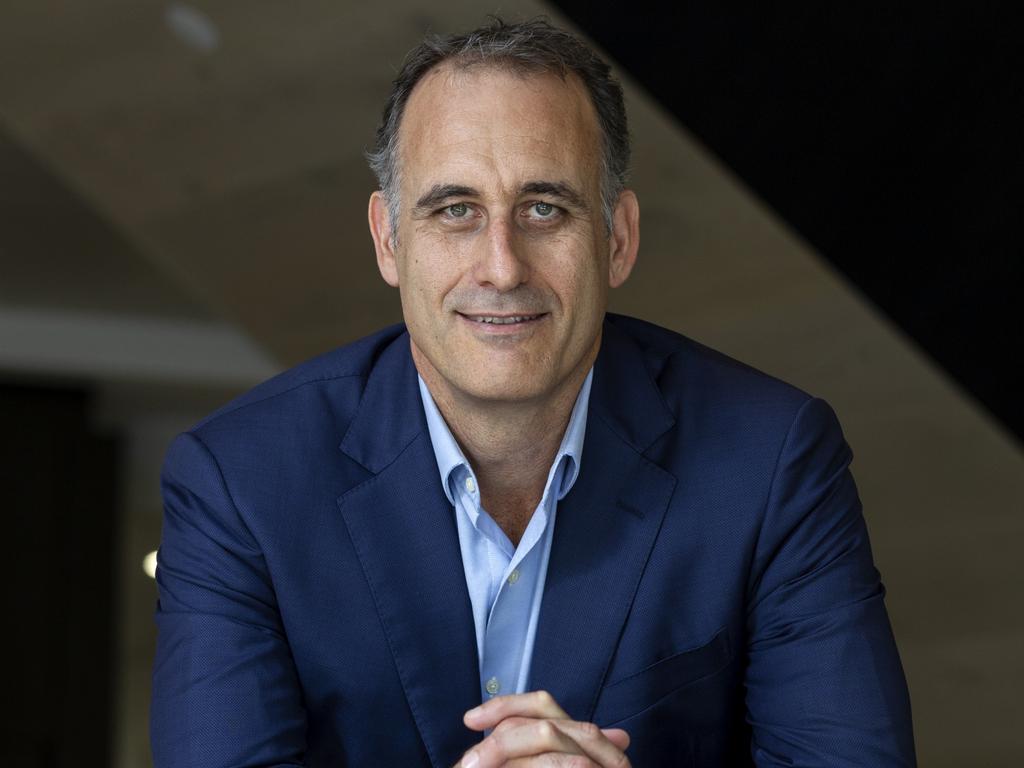
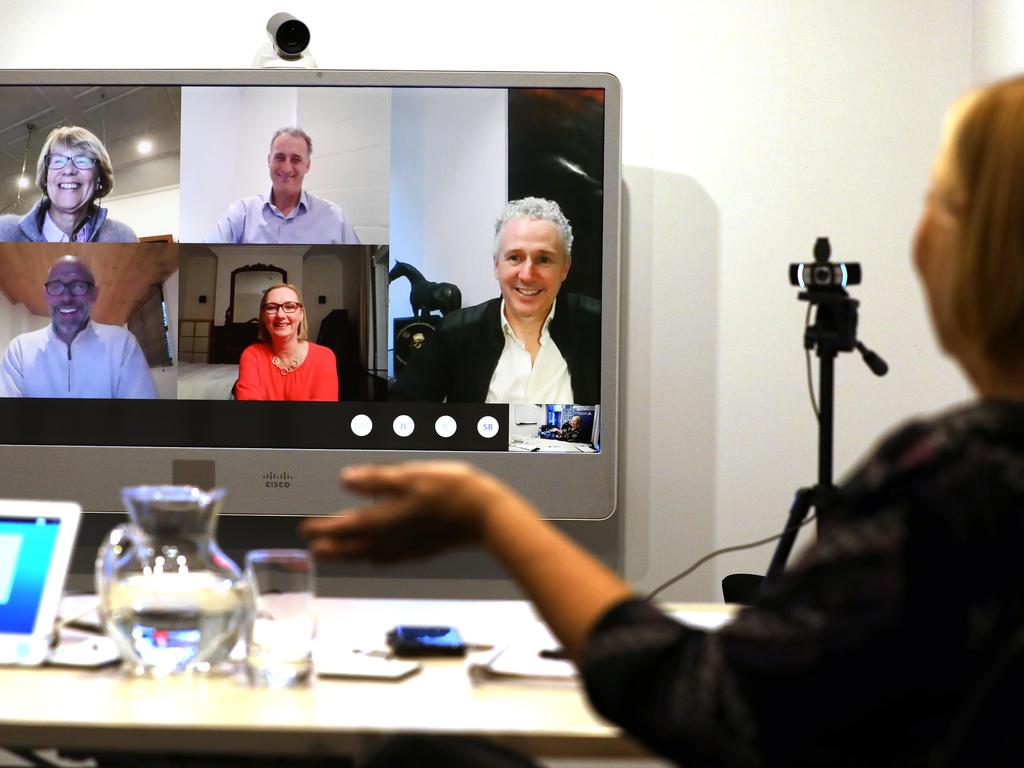
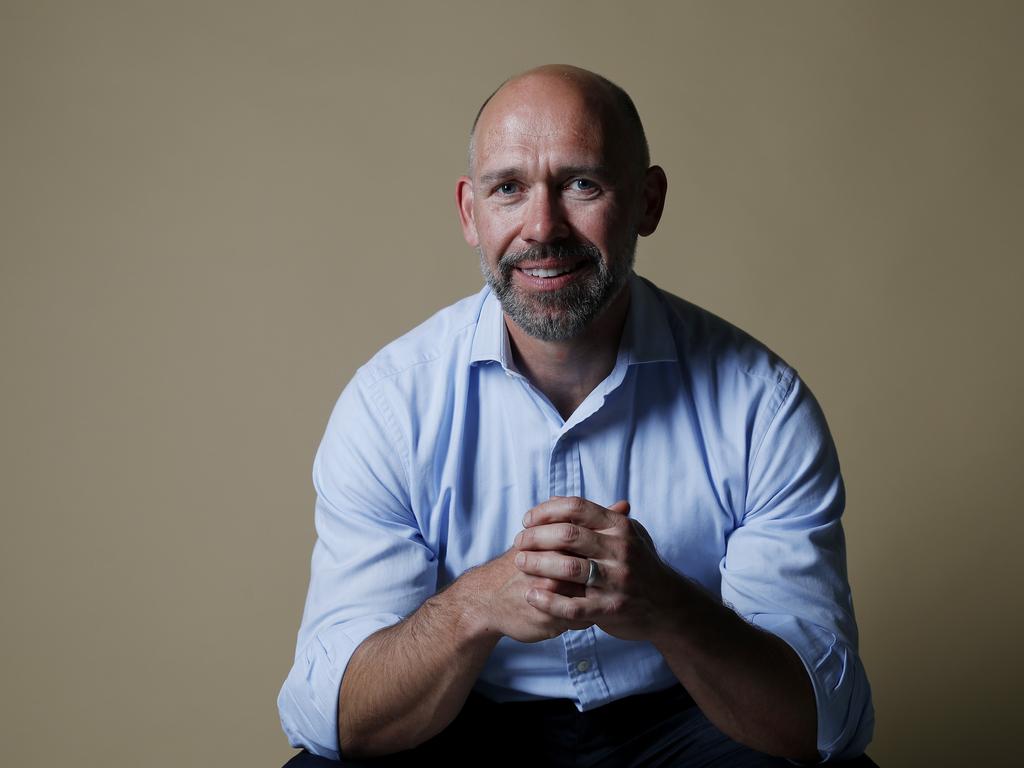



To join the conversation, please log in. Don't have an account? Register
Join the conversation, you are commenting as Logout